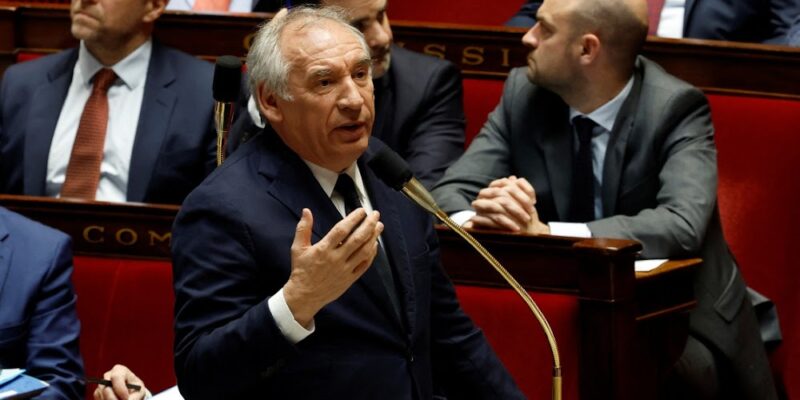Paris — French budget talks teetered on the brink of collapse on Wednesday, a day after Socialist party officials suspended their participation in protest over remarks about immigration by Prime Minister Francois Bayrou, threatening his government’s survival.
The flare-up over the comments by Bayrou, who said many French people felt “submerged” by immigration, underlines the complexity of his political balancing act.
His comments were cheered by far-right MPs from the National Rally (NR), the largest party in parliament, but prompted the Socialists to abandon budget talks, threatening the passage of the bill and raising fresh doubts about the stability of Bayrou’s administration.
The Socialists’ walkout comes at a crucial moment, with the 2025 budget bill entering its final stage. On Thursday, a small panel of senators and parliamentarians is due to thrash out a final text before it heads to the lower house floor on Monday.
“We suspended our negotiations because the words from the prime minister were not dignified,” Philippe Brun, a Socialist MP involved in the budget talks, said in an interview with Sud Radio on Wednesday.
Brun said the Socialists could return to the table if Bayrou withdrew his immigration remark. Government spokesperson Sophie Primas said the premier had no such plans and the budget must not be “taken hostage” by the dispute. Negotiations were not dead, she said, and Brun said he hoped they would resume.
Failure to pass the 2025 budget has already rattled investors while sapping business and household confidence. The government has had to make billions of euros in concessions to forge a bill with a chance of getting passed.
Without a majority, the government may use constitutional powers to bypass MPs, which is likely to cause opposition legislators to trigger a no-confidence vote.
The government had been counting on the Socialists abstaining to survive a potential no-confidence vote, and had already retreated on numerous spending cuts to win them over.
Bayrou, who was named prime minister in December, is seeking to avoid the fate of his predecessor, Michel Barnier. Politicians from the left and right banded together to topple Barnier’s government when he tried to pass a budget that MPs said had too many spending cuts.
While Barnier had sought support from the NR, Bayrou has attempted to survive with the backing of the Socialists. He has agreed to reopen talks on pension reform, a key initiative of President Emmanuel Macron, and scrapped plans by his predecessor to cut thousands of teachers’ jobs.
So far, Bayrou has survived one no-confidence vote after the Socialist Party did not support it. However, Brun said Socialists would consider backing another no-confidence motion if they could not come to an agreement on the budget.
Laurent Baumel, another Socialist MP, told French news broadcaster BFMTV the government had not made enough concessions. He said Socialists wanted a minimum-wage increase and more investment in the green transition, among other things.
Market reaction to the flare-up was muted. The gap between French and German 10-year bond yields — a reflection of the premium investors require for holding French debt — was about 1 basis point wider on Wednesday at 73 bps. The gap has narrowed this year, however. It is down from above 80 bps in mid-January and 90 bps in late November.
Reuters











Comments